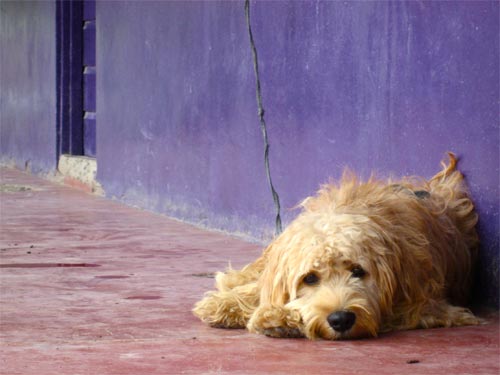I’m starting a new series called Brazil Mysteries – they are things I don’t (or didn’t used to) understand about life in this country. Some have been solved, some are as yet unsolved – but maybe one of my readers knows the answer! We’ll begin with a constant thorn in my side: the national R$ bill shortage.
Anyone who has spent at least 3 days in Brazil has probably encountered the following situation:
You purchase something costing R$ 2.50, such as bus fare or a snack, and hand the vendor a R$ 10 bill.
The vendor then gets a distressed expression on his or her face and says, “Iiiiih, tem troco não.”
(“There’s no change.”) If you try to use a R$ 20 or (God forbid) R$ 50, the chances of this happening increase exponentially.
The weird thing is that this doesn’t only happen with the guy selling mints on the bus. No, the small bills shortage hits even medium-sized retailers with multiple employees, which you’re pretty sure have had more than R$ 17.50 worth of transactions so far that day. I once tried to order a sandwich and juice totaling R$ 6 in a cafe in a well-to-do neighborhood, but when I flashed a R$ 20, the guy was like, “I can’t change a R$ 20!” Since I had no smaller bills, he lost a sale.
The two worst things are:
1. When the vendor glares at you as if it was YOUR fault that THEIR cash register is short the change.
Sorry, but the customer is always right. If you’re running a commercial establishment, you should stock your register or change bills at the bank or do whatever is needed to provide the extremely basic service of giving customers their change.
2. When they say “Wait here! I’ll go see if I can break it,” and run your large bill over to a neighboring business to see if they can break it.
But they may leave you hanging in the checkout for up to 15 minutes, because none of the other businesses have small bills either. Of course, this only happens on days when you’re in a hurry.
So I ask: Where have all the small bills gone?
My coping strategy: I take my R$ 50 bill (or, worse, a R$ 100) to the nearest large supermarket (“hypermarkets,” as some of them are called) and buy something small whose value is calculated to result in the largest possible number of lesser bills in change.
Sometimes the cashier still asks, looking at me suspiciously as I hand her a R$ 100 for a R$ 13 purchase, “Tem miúdo?” (“Have you got small bills?”)
“No,” I say icily, keeping the treasured R$ 2s and R$ 5s in my wallet out of her sight.
She sighs and hands me my R$ 87 in change – a 50, a 20, a 10, a 5, and a 2 – and I go merrily on my way. SCORE!



